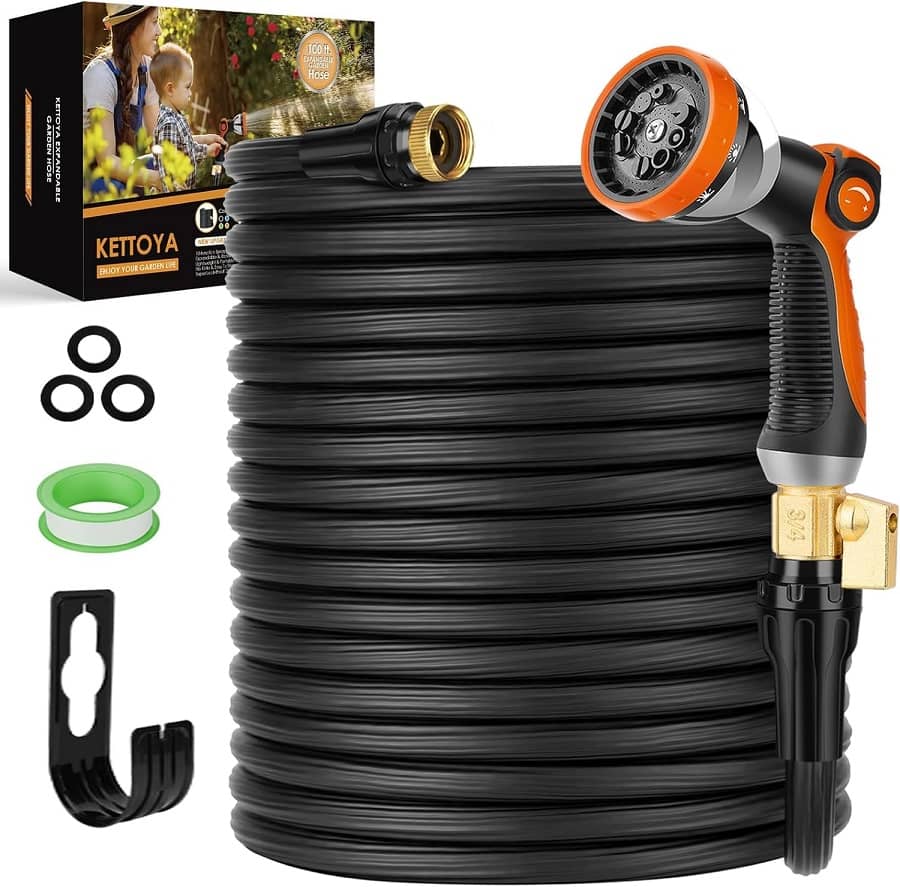Welcome to the world of financial empowerment, where saving money is not only easy but also rewarding. By implementing a few simple yet effective strategies, you can take control of your finances and pave the way to a healthier and more prosperous future. In this post, we will unveil the top 10 brilliant money-saving tips that will revolutionize your financial well-being.
#1 Create a budget and stick to it
Taking control of your finances starts with understanding how your money is being spent. Creating a budget is a crucial first step towards saving money and achieving your financial goals. By setting up a budget, you can gain a clear understanding of your income, expenses, and where your money is going. Here's how creating a budget can help you take charge of your finances:
Track your income: Start by determining your total monthly income from all sources. This includes your salary, side gigs, investments, and any other sources of income. Knowing your income will give you a clear picture of how much money you have available to allocate towards expenses and savings.
Categorize your expenses: Next, categorize your expenses into different categories such as housing, transportation, groceries, entertainment, debt payments, and savings. Be as detailed as possible to get a comprehensive overview of your spending habits.
Identify unnecessary spending: Analyze your expenses and identify areas where you can cut back. Look for discretionary expenses that are not essential for your day-to-day living. These could include eating out frequently, subscription services you rarely use, or impulse purchases. By pinpointing unnecessary spending, you can redirect those funds towards savings or more meaningful financial goals.
Set realistic savings goals: Determine how much you want to save each month and set realistic goals based on your income and expenses. It's recommended to aim for saving at least 20% of your income, but any amount you can save is a step in the right direction. Start with a manageable goal and gradually increase it over time.
Monitor and adjust: Regularly review your budget to ensure you're staying on track. Monitor your expenses and compare them to your budgeted amounts. If you find yourself overspending in certain categories, look for ways to make adjustments or reallocate funds from other categories. Flexibility is key in maintaining a sustainable budget.
Use budgeting tools: Take advantage of budgeting apps or software that can help simplify the process. These tools can automatically track your income and expenses, categorize transactions, and provide visual representations of your financial situation. They can also send alerts or notifications when you're approaching or exceeding your budget limits.
Stay motivated: Saving money can sometimes feel challenging, but remind yourself of the long-term benefits. Whether it's building an emergency fund, saving for a down payment on a house, or planning for retirement, keep your goals in mind to stay motivated and committed to your budget.
Creating a budget is an essential tool for taking control of your finances. It provides a clear roadmap for managing your income, expenses, and savings. By tracking your spending, identifying areas where you can cut back, and setting realistic savings goals, you can make significant progress towards achieving your financial objectives. Start today and empower yourself with the knowledge and discipline to make informed financial decisions.
#2 Set up automatic transfers to your savings account
Consistency: Automating your savings ensures that you consistently contribute to your savings account each month. With a set amount automatically transferred from your checking account to your savings account, you eliminate the risk of forgetting to save or being tempted to spend the money elsewhere. This consistency builds a strong savings habit over time.
Ease and convenience: Setting up automatic transfers is quick and easy. Most banks offer online banking platforms that allow you to schedule recurring transfers at your desired frequency, such as monthly or bi-weekly. Once you set it up, you can sit back and relax, knowing that your savings are being taken care of automatically.
Psychological advantage: Automating your savings takes advantage of the "out of sight, out of mind" principle. When the money is automatically transferred to your savings account, you're less likely to think about it as disposable income. This separation makes it easier to resist the temptation of spending it on impulse purchases, keeping your savings intact and growing.
Capitalize on compounding: By consistently adding to your savings through automatic transfers, you allow your money to compound over time. Compounding refers to earning interest on your initial savings and any accumulated interest. The longer your money stays in your savings account, the more it grows through compounding. Automating your savings helps maximize the compounding effect, allowing your money to work harder for you.
Reach your goals faster: Automating your savings is an effective strategy for achieving your financial goals. Whether you're saving for a down payment on a house, a dream vacation, or an emergency fund, consistent contributions through automatic transfers can accelerate your progress. You'll be surprised at how quickly your savings can accumulate when you make it a priority.
Peace of mind: Knowing that you have a consistent savings plan in place can bring peace of mind. It provides a financial safety net and a sense of security for unexpected expenses or future goals. Automating your savings reduces stress and allows you to focus on other aspects of your financial well-being.
Take control of your savings by automating the process. Set up automatic transfers from your checking account to your savings account and watch your savings grow effortlessly. By maintaining consistency, taking advantage of compounding, and staying committed to your financial goals, you'll be amazed at the progress you can make. Start automating your savings today and pave the way to a more secure and prosperous future.
#3 Re-evaluate your subscription services
Eliminating unnecessary
subscriptions can be a game-changer for your budget. Take a moment to evaluate your current subscriptions and consider the following tips to cut out the ones that are draining your finances:
Assess your usage: Take a critical look at each subscription and evaluate how frequently you actually use it. Ask yourself if it brings you enough value to justify the cost. For example, if you rarely visit the gym despite having a membership, or if you find yourself watching only a handful of channels on your cable package, it may be time to reconsider those subscriptions.
Prioritize your essentials: Identify the subscriptions that are essential to your lifestyle and align with your priorities. These may include necessary services like internet or utility bills. Ensure that you're allocating your funds to the subscriptions that provide the most value and directly contribute to your well-being.
Cancel unused or duplicate subscriptions: Be vigilant about subscriptions you no longer need or ones that duplicate services you already have. Take a close look at your bank statements and identify any recurring charges for services you rarely use or that overlap with other subscriptions. Canceling these unused or duplicate subscriptions can free up significant funds.
Explore alternative options: Consider alternative ways to enjoy the same benefits without the hefty price tag. For instance, instead of a traditional gym membership, you could try home workouts or exercise apps that offer a wide range of fitness routines. Look for free or more cost-effective streaming services that provide the content you enjoy, rather than paying for channels you seldom watch.
Negotiate or downgrade: If you find that you still need certain subscriptions but want to save money, try negotiating with the providers for better rates or downgrading to a lower-tier plan. Many companies are willing to work with customers to retain their business. It never hurts to ask and explore the available options.
Stay mindful of free trials: Free trials can be enticing, but they often lead to paid subscriptions if you forget to cancel in time. Be cautious when signing up for free trials and set reminders to cancel them before they convert into paid subscriptions.
Revisit your subscriptions periodically: Regularly review your subscriptions to ensure they still align with your needs and budget. Your circumstances may change, and what was once valuable may no longer be necessary or worth the cost. Make it a habit to reassess your subscriptions every few months to avoid accumulating unnecessary expenses.
By cutting out unnecessary subscriptions, you can free up extra money each month and redirect those funds toward your savings goals or other essential expenses. Take control of your subscriptions, prioritize what truly matters, and make conscious decisions that align with your financial well-being.
#4 Shop smarter
Mastering the art of smart shopping can lead to significant savings over time. Here are some tips to help you make the most of your budget:
Embrace coupons: Coupons are a fantastic way to save money on your purchases. Keep an eye out for coupons in newspapers, magazines, online platforms, and store apps. Clip and organize them so they are easily accessible when you go shopping. Before making a purchase, check if there are any applicable coupons that can help you score a discount.
Capitalize on sales: Sales are a shopper's best friend. Pay attention to weekly ads and promotions from your favorite stores. Plan your shopping trips around these sales to take advantage of discounted prices. Stock up on non-perishable items or items with a long shelf life when they are on sale. This way, you can save money in the long run and avoid paying full price later.
Consider buying in bulk: Buying in bulk can lead to significant savings, especially for items you use frequently or non-perishable goods. Warehouse clubs and bulk stores often offer competitive prices on items such as paper products, cleaning supplies, and pantry staples. Just make sure you have enough storage space and that the items won't go to waste before you can use them.
Try generic brands: Don't be afraid to explore generic or store brands as alternatives to name brands. In many cases, generic brands offer comparable quality to their more expensive counterparts at a lower price. Compare ingredient lists and give generic brands a chance. You might be pleasantly surprised by the savings without sacrificing quality.
Shop with a list and stick to it: Creating a shopping list and sticking to it can help you avoid impulsive purchases and stay focused on your needs. Before heading to the store, make a list of the items you genuinely need. This will help you resist the temptation to buy unnecessary items and save money by avoiding impulse buys.
Price compare: Take the time to compare prices before making a purchase. With online shopping, it's easier than ever to compare prices across different retailers. Use price comparison websites or apps to find the best deal on the items you're looking for. Remember to factor in shipping costs if applicable.
Avoid shopping when hungry: Shopping on an empty stomach can lead to impulse purchases of unhealthy snacks or unnecessary items. Eat a satisfying meal or snack before heading to the store to help curb impulsive buying decisions driven by hunger.
Loyalty programs and rewards: Sign up for loyalty programs offered by your favorite stores. These programs often provide exclusive discounts, rewards, and personalized offers. Take advantage of these benefits to maximize your savings.
Remember, saving money while shopping requires a combination of patience, research, and discipline. By incorporating these strategies into your shopping routine, you can make each dollar stretch further and build a healthier financial future.
#5 Cook your meals at home
One of the best ways to save money and make healthier food choices is by
cooking at home. Not only does it offer substantial savings compared to dining out, but it also allows you to have control over the ingredients and portions of your meals. Here are some reasons why cooking at home is a smart choice:
Cost-effective: Eating out, whether at restaurants or grabbing takeout, can quickly add up and take a toll on your budget. By cooking at home, you can significantly reduce your food expenses. Buying ingredients from the grocery store is often much cheaper than paying for prepared meals at restaurants. With proper meal planning and budgeting, you can save a considerable amount of money each month.
Healthier options: Cooking at home gives you the power to choose fresh, nutritious ingredients for your meals. You can control the amount of oil, salt, and sugar you use, making it easier to maintain a balanced diet. Additionally, you can accommodate specific dietary needs or restrictions, ensuring that your meals align with your health goals.
Portion control: Restaurants often serve larger portions than necessary, which can lead to overeating and wasted food. When you cook at home, you can portion your meals according to your needs, reducing food waste and promoting mindful eating. By controlling portion sizes, you can also manage your calorie intake and maintain a healthy weight.
Developing cooking skills: Cooking at home provides an opportunity to improve your culinary skills. As you explore new recipes and techniques, you'll become more confident and proficient in the kitchen. Cooking can be a fun and creative outlet, allowing you to experiment with flavors and develop your own signature dishes. It's a rewarding hobby that can bring joy and satisfaction to your daily life.
Quality time with loved ones: Cooking at home can be a social activity that brings family and friends together. Involve your loved ones in meal preparation, and enjoy the bonding experience of cooking and eating together. It's a chance to share stories, laughter, and create lasting memories.
Meal customization: When cooking at home, you have the flexibility to customize your meals according to personal preferences and dietary needs. Whether you follow a specific diet or have specific food allergies, you can adapt recipes to suit your requirements. This level of customization is often not possible when dining out.
Meal planning and batch cooking: Meal planning is a valuable strategy that can help you save time and money. By planning your meals in advance, you can make efficient use of ingredients, reduce food waste, and minimize last-minute impulse purchases. Consider batch cooking, where you prepare larger quantities of meals and freeze them for later use. This way, you always have a home-cooked meal ready, even on busy days.
Cooking at home is a practical and rewarding way to save money, eat healthier, and develop new skills. Start by exploring recipes, building a repertoire of go-to meals, and gradually expanding your culinary horizons. With time, you'll become a confident home cook, enjoying delicious meals while keeping your wallet and well-being in check.
#6 Invest in energy-efficient appliances
Investing in
energy-efficient appliances is a smart financial decision that can lead to long-term savings. While these appliances may have a higher upfront cost, their energy-saving features can significantly reduce your monthly utility bills. Here's why using energy-efficient appliances is a wise choice:
Lower energy consumption: Energy-efficient appliances are designed to use less energy while maintaining optimal performance. They incorporate advanced technologies and innovative features that minimize energy waste, resulting in lower electricity, gas, or water usage. By consuming less energy, these appliances can help you save money on your utility bills over time.
Reduced operating costs: Traditional appliances consume more energy, leading to higher operating costs in the long run. Energy-efficient appliances, on the other hand, are designed to operate more efficiently, resulting in lower energy consumption and decreased operating expenses. While the initial purchase cost may be slightly higher, the energy savings throughout the appliance's lifespan can more than offset the upfront investment.
Environmental benefits: Energy-efficient appliances not only benefit your wallet but also contribute to a greener and more sustainable environment. By consuming less energy, these appliances help reduce greenhouse gas emissions and conserve natural resources. Using energy-efficient appliances is an effective way to minimize your carbon footprint and promote environmental stewardship.
Government incentives and rebates: Many governments and utility companies offer incentives and rebates for purchasing energy-efficient appliances. These incentives can offset the higher initial cost and provide additional savings. Check with your local government or utility provider to see if there are any available programs or discounts that you can take advantage of when purchasing energy-efficient appliances.
Enhanced durability and performance: Energy-efficient appliances are often built with high-quality materials and advanced technologies, which can contribute to their longevity and performance. These appliances are designed to meet strict efficiency standards, ensuring that they operate optimally and last longer than their conventional counterparts. By investing in energy-efficient appliances, you can enjoy the benefits of superior performance and durability.
Increased home value: Energy-efficient appliances are attractive to potential homebuyers. As energy efficiency becomes a more significant consideration for homeowners, having energy-efficient appliances can enhance the value and marketability of your home. When it's time to sell your property, energy-efficient appliances can be a selling point that sets your home apart from others in the market.
When shopping for appliances, look for the ENERGY STAR label or other recognized energy efficiency certifications. These labels indicate that the appliances meet rigorous energy efficiency criteria. Additionally, consider the specific energy-saving features of each appliance, such as programmable settings, smart technology, or water-saving capabilities.
By using energy-efficient appliances, you can enjoy significant savings on your utility bills, reduce your environmental impact, and benefit from enhanced performance and durability. Make a smart investment in energy efficiency and enjoy the long-term financial and environmental rewards.
#7 Stop impulse shopping
Resisting the temptation of impulse purchases can save you a substantial amount of money and help you make more mindful spending decisions. Here are some strategies to limit impulse purchases and avoid unnecessary spending:
Pause and reflect: Before making a purchase, take a moment to pause and reflect on whether you genuinely need the item. Ask yourself if it aligns with your priorities and if it's something you can't live without. Giving yourself time to think can help you separate impulse buys from items that hold true value or significance.
Create a waiting period: Implement a waiting period, such as waiting 24 hours or a few days, before making non-essential purchases. This allows you to step back from the initial excitement and reassess the purchase with a clearer mindset. Oftentimes, you'll find that the desire to buy diminishes during the waiting period, indicating that it was merely an impulse.
Make a shopping list: Prepare a shopping list before heading to the store or browsing online. Stick to the list and avoid deviating from it unless there's a genuine need. Having a structured list helps you focus on necessary items and reduces the chances of impulse purchases.
Set a budget and prioritize: Establish a budget for your discretionary spending and allocate your funds accordingly. Determine your financial priorities and allocate more resources to them. By setting clear boundaries and prioritizing your spending, you can resist the temptation to splurge on impulsive purchases that don't align with your goals.
Evaluate the long-term value: Consider the long-term value and utility of the item you're considering purchasing. Will it bring lasting joy or serve a practical purpose? Evaluating the long-term benefits can help you distinguish between impulsive wants and genuine needs.
Avoid shopping triggers: Identify situations or environments that tend to trigger impulse purchases and avoid them whenever possible. This could include browsing online shopping sites when you're bored or visiting stores without a specific purpose. Minimizing exposure to these triggers reduces the likelihood of impulsive spending.
Practice mindful spending: Practice mindfulness while shopping by being fully present and aware of your buying decisions. Ask yourself if the purchase aligns with your values, fits within your budget, and brings genuine satisfaction. By practicing mindful spending, you can develop a stronger sense of control over your purchasing habits.
Seek alternatives and do research: Before making a purchase, explore alternative options and compare prices. Researching different brands, models, or stores can help you find better deals or discover more suitable alternatives. Taking the time to research ensures that you're making an informed decision rather than succumbing to impulse buying.
Track your spending: Keep a record of your expenses to track your spending patterns and identify areas where impulse purchases tend to occur. By analyzing your spending habits, you can gain valuable insights and take proactive steps to limit impulse buying.
Cultivate contentment: Focus on cultivating contentment and appreciating what you already have. Practice gratitude for the things that bring you joy and find fulfillment in non-material aspects of life. Shifting your mindset can reduce the desire for unnecessary purchases driven by impulse.
By implementing these strategies, you can regain control over your spending habits, curb impulse purchases, and make more intentional and mindful choices that align with your financial goals. Remember, a little restraint in the present can lead to greater financial security and freedom in the future.
#8 Maximizing your transportation savings
Maximizing your transportation savings doesn't have to be a challenge. By adopting a few smart strategies, you can significantly reduce your transportation expenses and make a positive impact on the environment. Here are some tips to help you save on transportation:
Opt for alternative modes of transportation: Whenever feasible, choose walking, biking, or using public transportation instead of relying solely on driving. Walking or biking short distances not only saves money on fuel but also promotes a healthier lifestyle. Public transportation, such as buses or trains, is often a more cost-effective option compared to the expenses associated with owning and maintaining a car.
Carpool or rideshare: If driving is unavoidable, consider carpooling with colleagues, friends, or neighbors who have similar commuting routes. By sharing the ride and splitting the costs, you can reduce fuel expenses and potentially take advantage of carpooling lanes or parking discounts. Alternatively,
ridesharing services like Uber or Lyft offer convenient options for sharing rides and splitting costs with others heading in the same direction.
Choose fuel-efficient vehicles: If you're in the market for a new vehicle, prioritize fuel efficiency when making your selection. Opt for cars with higher gas mileage or consider hybrid or electric vehicles that offer significant savings on fuel costs over time. While the upfront cost may be higher, the long-term savings on fuel and maintenance can make it a worthwhile investment.
Maintain your vehicle: Regular vehicle maintenance, such as oil changes, tire rotations, and air filter replacements, can optimize your car's fuel efficiency and prevent costly repairs down the line. Properly inflated tires, for example, can improve gas mileage and save you money at the pump. Following the manufacturer's recommended maintenance schedule will help keep your vehicle running efficiently and extend its lifespan.
Plan your trips efficiently: Consolidate your errands and plan your trips in advance to minimize unnecessary mileage and fuel consumption. Combine multiple stops in one outing to avoid backtracking or making separate trips. Additionally, consider using navigation apps or websites that offer real-time traffic updates to help you find the most efficient routes and avoid congestion.
Consider car-sharing services: Instead of owning a car, explore car-sharing services in your area. These services allow you to rent a vehicle for short periods, typically by the hour or day, giving you access to a car only when you need it. This can be a cost-effective alternative for individuals who don't require a car on a daily basis or want to avoid the expenses associated with ownership, such as insurance, parking, and maintenance.
Negotiate insurance rates: Periodically review your auto insurance policy and shop around for the best rates. Contact different insurance providers to compare quotes and consider bundling your car insurance with other policies, such as home or renter's insurance, for potential discounts. Additionally, maintaining a clean driving record and taking defensive driving courses may qualify you for lower insurance premiums.
Utilize commuter benefits: Check if your employer offers commuter benefits, such as pre-tax deductions for public transportation expenses or subsidies for carpooling. These programs can provide significant savings by reducing your taxable income or offering financial incentives for using alternative modes of transportation.
Stay informed about fuel prices: Stay updated on fuel prices in your area and take advantage of the lowest prices when filling up your vehicle. Utilize smartphone apps or websites that provide real-time information on nearby gas stations and their current fuel prices. By planning your refueling around the lowest prices, you can save money on every fill-up.
Evaluate vehicle ownership costs: Assess your current vehicle's overall costs, including depreciation, insurance, registration fees, and maintenance. Depending on your specific circumstances and transportation needs, it may be more cost-effective to downsize to a smaller vehicle or consider alternatives like car rentals, car-sharing services, or ridesharing platforms for specific trips.
By implementing these tips, you can reduce your transportation expenses, contribute to a greener environment, and enjoy the financial benefits of smart and efficient transportation choices. Remember, even small changes in your transportation habits can add up to substantial savings over time.
#9 Save money with DIY
Taking matters into your own hands and embracing the do-it-yourself (DIY) approach can be a game-changer when it comes to saving money. Whether you're tackling home repairs, creating personalized gifts, or exploring new hobbies, DIY projects offer numerous benefits beyond just the financial aspect. Here's why you should consider DIY and how it can add value to your life:
Cost savings: One of the primary advantages of DIY is the potential for significant cost savings. By doing tasks yourself instead of hiring professionals or purchasing pre-made items, you can avoid labor or service fees, markups on retail products, and the added expense of outsourcing. The money saved can be used for other essential expenses or put towards your savings goals.
Skill development: DIY projects provide an excellent opportunity to learn new skills or enhance existing ones. As you delve into various tasks, you'll acquire practical knowledge, problem-solving abilities, and a sense of empowerment. Mastering DIY skills can open doors to a wide range of possibilities, allowing you to tackle more complex projects in the future with confidence.
Personalization and creativity: DIY projects allow you to infuse your unique style and personality into every endeavor. Whether you're refurbishing furniture, crafting handmade gifts, or creating home decor items, you have the freedom to customize them according to your preferences. This personal touch adds sentiment and authenticity, making your creations truly one-of-a-kind.
Quality control: When you take charge of a project, you have complete control over the materials and techniques used. This means you can prioritize quality and durability, ensuring that the end result meets your standards. By carefully selecting the right materials and employing meticulous craftsmanship, you can create products that are built to last.
Sustainable living: DIY aligns with the principles of sustainability and eco-consciousness. By reusing or repurposing items, you can reduce waste and minimize your environmental footprint. Additionally, DIY often involves using natural or environmentally friendly materials, which contributes to a greener lifestyle.
Emotional fulfillment: Engaging in DIY projects can be a source of immense satisfaction and pride. Completing a project with your own hands instills a sense of accomplishment and boosts self-confidence. Witnessing the tangible results of your hard work can be highly rewarding and motivates you to take on more challenges.
Bonding and shared experiences: DIY projects can also foster meaningful connections with others. Engaging in collaborative projects with family, friends, or neighbors not only strengthens relationships but also creates lasting memories. Sharing knowledge, working together towards a common goal, and celebrating the final outcome can be a source of joy and fulfillment.
Stress relief and mindfulness: DIY activities can serve as a form of relaxation and stress relief. Engaging in creative tasks allows you to immerse yourself in the present moment, promoting mindfulness and a break from daily pressures. It offers a therapeutic outlet for self-expression and a chance to unwind while focusing on a productive and enjoyable activity.
Personal growth and self-reliance: Taking on DIY projects promotes personal growth by expanding your knowledge, honing your problem-solving abilities, and fostering a can-do attitude. As you become more self-reliant and independent in handling various tasks, you gain confidence in your abilities to overcome challenges in other areas of life as well.
Community engagement: DIY can also connect you with a vibrant community of like-minded individuals. Whether through online forums, local workshops, or social media groups, you can share your projects, seek advice, and learn from others' experiences. Building relationships within the DIY community can provide inspiration, support, and opportunities for collaboration.
From saving money to personal fulfillment, the benefits of embracing DIY projects are abundant. So, roll up your sleeves, unleash your creativity, and embark on a journey of self-discovery and frugal ingenuity. You'll not only enhance your financial well-being but also discover the joy and satisfaction that comes from creating something with your own hands.
#10 Consider investing
Unlocking the potential for long-term financial growth and securing a prosperous future requires strategic investments. By making informed investment decisions, you can maximize your wealth and work towards achieving your financial goals. Here's why investing wisely is crucial and how a financial advisor can guide you towards success:
Wealth accumulation: Investing offers the opportunity for your money to work for you and generate additional income over time. By allocating your funds into various investment vehicles such as stocks, bonds, real estate, or mutual funds, you can potentially earn returns that outpace inflation and build significant wealth.
Diversification and risk management: A key principle of investing is diversifying your portfolio. Spreading your investments across different asset classes helps reduce the impact of market fluctuations on your overall portfolio. By diversifying, you can manage risk and protect yourself from significant losses in any single investment.
Expert guidance: Navigating the complex world of investments can be overwhelming, especially for beginners. This is where a financial advisor can play a crucial role. An experienced advisor can assess your financial situation, risk tolerance, and goals to create a personalized investment strategy tailored to your needs. They have the knowledge and expertise to identify suitable investment opportunities and guide you through the investment process.
Market insights: Financial advisors stay updated on market trends, economic indicators, and investment opportunities. They can provide valuable insights and help you make informed decisions based on thorough research and analysis. With their expertise, you can take advantage of favorable market conditions and adjust your investment strategy accordingly.
Goal-oriented approach: A financial advisor works with you to define your investment objectives and develop a plan to achieve them. Whether your goal is to save for retirement, fund your child's education, or purchase a new home, an advisor can create a roadmap that aligns your investments with your specific financial targets.
Risk assessment and management: Investing inherently involves risk, and understanding your risk tolerance is essential. A financial advisor will help assess your risk appetite and recommend investment options that match your comfort level. They will also assist in managing risk by implementing strategies such as asset allocation and diversification to protect your investments.
Long-term perspective: Successful investing requires a long-term perspective. Financial advisors emphasize the importance of patience and discipline when it comes to investment decisions. They help you stay focused on your long-term goals and avoid making impulsive decisions based on short-term market fluctuations.
Monitoring and adjustments: Markets and investment landscapes are dynamic, and regular monitoring is crucial. A financial advisor keeps a watchful eye on your investments, tracking performance, and making adjustments as needed. They can rebalance your portfolio, capitalize on emerging opportunities, and ensure your investments remain aligned with your goals.
Education and empowerment: Working with a financial advisor provides an educational opportunity. They can help you understand the intricacies of investing, explain different investment options, and empower you to make informed decisions. As you develop a deeper understanding of investments, you can actively participate in the decision-making process and take ownership of your financial future.
Investing wisely is a journey that requires careful planning, expert advice, and ongoing evaluation. By working with a financial advisor, you can navigate the complexities of the investment landscape and make informed decisions that align with your financial goals. Together, you can build a solid foundation for long-term financial success and achieve the prosperity you desire.
Conclusion
In conclusion, embarking on a journey to save money is a transformative endeavor that requires dedication and a commitment to making positive changes in your financial habits. By incorporating the brilliant money-saving tips mentioned above into your daily life, you can create a solid foundation for a healthier financial future.
Remember, saving money is not an overnight process but a continuous effort that accumulates over time. Each small change you make can have a significant impact on your overall financial well-being. Whether it's creating a budget, automating your savings, cutting out unnecessary subscriptions, shopping smart, cooking at home, using energy-efficient appliances, limiting impulse purchases, saving on transportation, embracing DIY projects, or investing wisely, each step contributes to your journey towards financial freedom.
Be patient and stay focused on your long-term goals. Celebrate your progress along the way and stay motivated by tracking your savings and witnessing the positive effects of your efforts. As you implement these tips and witness your savings grow, you'll gain confidence and the ability to make even smarter financial decisions.
Remember, saving money is not just about accumulating wealth; it's about gaining control over your financial life, reducing stress, and building a more secure future for yourself and your loved ones. So, start making these changes today and embrace the satisfaction and peace of mind that comes with knowing you are actively working towards your financial goals.
The journey to financial stability and prosperity begins with a single step. Start implementing these brilliant money-saving tips today, and watch your savings grow. Your future self will thank you for the effort and dedication you put into creating a healthier financial life. So, take control of your finances, stay motivated, and enjoy the rewards that come with a brighter financial future.




















